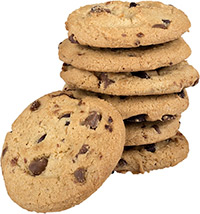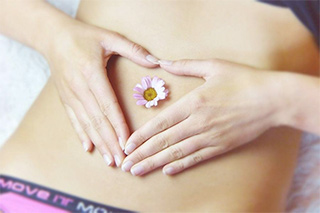PMS symptoms are something that every woman dreads when that time of the month comes around; whether you’re experiencing bad cramping, big cravings, or coming-from-nowhere mood swings, menstruation can hit hard. Luckily your symptoms can give you some clues as to what may be going on within your body, and how you can shift your lifestyle, diet, or supplement intake to help ease symptoms and get you feeling back on track. Read on to learn more about what your PMS symptoms say about your body, and to get some advice from Dr. Bristow on what changes might be beneficial to you.
Let’s be honest: PMS can be nasty. It can be especially nasty when someone points it out to us! How often have you had someone ask “are you getting your period?”. It’s annoying right!?
But here’s the deal: while PMS is incredibly common, it’s actually not normal. There are hormonal changes that occur before menses, but those shifts do not need to come with symptoms.
These symptoms are a signal from your body that something is off with your hormonal balance. PMS is a collection of symptoms that tell us what’s going on in our body.
The Top Four Types of PMS:
1) Type A – PMS Anxiety

Symptoms
- Anxiety
- Anger, frustration, irritability
- Mood swings, crying easily
- Low self-esteem
- Overwhelmed
- Sensitive to criticism or rejection
- Insomnia
- Finding fault in others
Causes
- Excess estrogen, low progesterone, or both!
- Excess estrogen affects enzymes, causing a net result of:
- Increased adrenaline, which triggers anxiety.
- Decreased dopamine, which triggers stress and cloudy/irrational thinking.
- Low thyroid function
What you can do: make sure your thyroid and adrenal glands are working well.
If excess estrogen is your problem, support your liver and digestive system. The liver processes all our hormones, including estrogen. Our bodies send estrogen to our digestive system to be removed through bowel movements, but if it sits in the colon too long the estrogen is reabsorbed! It’s important to have healthy, daily and effective bowel movements to keep estrogen levels in check.
Try out an abdominal castor oil pack to support liver and bowel movements.
Check out my article on estrogen dominance to learn more.
2) Type C – PMS Cravings
Symptoms
- Cravings for carbohydrates, chocolate and sugary foods
- Uncontrollable appetite
- Hangry!
- Shaky if haven’t eaten
- Headaches
- Fatigue
Causes
- Insulin and cortisol levels are imbalanced
- Cortisol drop, sugar cravings
- Serotonin drop, carbohydrate cravings
What you can do: if this is a common PMS symptom for you, there may be some underlying insulin and blood sugar management issues that are best addressed through the whole cycle rather than just pre-menstrual. Focus on eating protein, healthy fats and fibrous foods that will sustain you rather than quick sugar fixes that perpetuate the problem.
Supplements like magnesium, chromium and vitamin B6 can be helpful.
3) Type D – PMS Depression
Symptoms
- Depression, withdrawal, apathy
- Fatigue, lethargy, sluggishness
- Insomnia
- Mental fatigue, confusion, forgetfulness
Causes
- Low serotonin (the feel-good brain chemical!)
- A drop in thyroid hormones during the second half of the cycle
- Undiagnosed or subclinical hypothyroidism
What you can do: get a complete and thorough check of your thyroid done!
Check out my article on thyroid health to learn more. Use Wilson’s Temperature Method to check your thyroid function at home.
4) Type H – PMS Hyper-hydration / Water Retention
Symptoms
- Swollen face, hands, fingers, ankles
- Abdominal bloating
- Breast swelling and tenderness
- Weight gain during PMS
Causes
- Poor lymphatic flow
- Excess sugar consumption sparks salt and water retention
- Estrogen dominance
- Elevated stress causes release of adrenal hormone aldosterone. The role of this hormone is to retain water.
- Under functioning thyroid
What you can do: Reduce alcohol, caffeine, and salt in your diet. Dandelion root and leaf are wonderful liver and kidney supports that also have diuretic qualities so you can shed that extra water. Include more potassium rich foods like avocados, banana’s and broccoli. Consider some stress reduction techniques.
If your interest has been kindled and you want to know more about getting rid of PMS once and for all, join us at Healthy By Nature: through May 16th, we’ll be offering a discounted initial visit to “Bust Your PMS!”
You can book a Free 15 min Meet and Greet with Dr. Bristow by calling us at 403-452-0029 or by clicking here to book online.
